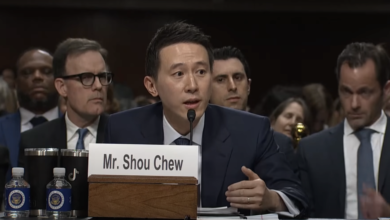In a rare moment of honest questioning from the big-business media, in February, ABC reporter Jon Karl asked White House Press Secretary Jay Carney: “How does dropping a bomb on an American citizen without any judicial review, without any trial, not raise the very human rights questions, or more human rights questions, raised by something like waterboarding?”
The reporter noted the contradiction that President Obama repeatedly came out against torturing terrorist suspects, but now has insisted that it is legal to kill them. Carney failed to give a straight answer.
It is not just this single reporter who is struggling to wrap his head around the contradiction. A whole layer of rank-and-file Democratic party activists, many who proudly wear the “progressive” label, are increasingly showing their discomfort—or even disdain—for a policy that directly replicates Bush’s “War on Terror” legal doctrines.
Combined with last year’s revelations about secret “kill lists”—in which he personally selects and orders who will be killed by drones—the president’s well-cultivated public perception as an anti-war figure has been dramatically diminished.
Instead of a new era of transparency and respect for civil liberties, as promised, the last four years have only accelerated the general trend under Bush—continued mass surveillance, a new law allowing indefinite detention without a trial, the crackdown on the Occupy movement, and now legal justification for assassinating U.S. citizens alleged to be terrorists.
Official liberalism completely inept
Mainstream liberal figures, projecting a new era of progressivism after the November election, were given a reality shock with the leaking of the Democrats’ Department of Justice memo justifying assassinations. Rachel Maddow and the MSNBC crew, who made their careers criticizing Bush’s foreign policy, could only speak of the “complexity” of the issue and their “concerns.” The Democrats’ Progressive Caucus in the House, the left wing of bourgeois politics, only demanded that the administration release more information on the unconstitutional kill program. The White House refused.
Clearly, the political establishment will provide no solution to the national security state. Because the two parties and ruling class as a whole have consensus on it, the “loyal opposition” in the Democratic Party has accepted it as well.
As always, the job of creating real social and political change falls to working-class and oppressed people, and to the radicals who refuse to accept the status quo.
Creating a movement
Showing the enormous gap between the administration’s promises and its actual practice— breaking people’s political allegiance to the Democratic Party—is a top priority for people who want to build a revolutionary alternative inside the United States. The critical question is how.
Creating a movement under present political conditions is not as easy as declaring it. It requires sober evaluation of the political mood of those we want to reach. It requires organization to synthesize the experiences of organizers across the country, and from there craft a forward-looking strategy.
Obama retains, for instance, deep support in African American communities, especially when posed against his right-wing critics and those who could be perceived as racist. He scored significant margins of victory among Latinos, Asian Americans, Native people and the LGBT community. Hundreds of thousands of self-identified progressives campaigned and voted for Obama, despite their misgivings or differences with his policies.
So what can be done? The approach of the Party for Socialism and Liberation is to create opportunities for struggle against the government, campaigns through which the crimes of the system can be exposed and popularly understood. Experience shows that people’s consciousness shifts most dramatically through the process and experience of struggle itself. The upcoming April 13 demonstration against drone warfare in Africa is one example. Marches against police brutality are another.
There is no political prerequisite for people to join these activities. In fact, we hope that they also draw those who still may consider themselves Obama supporters, but have grown opposed to certain administration policies.
The task of socialist politics is figuring out how to raise class consciousness out of such opportunities.
Personal betrayal or systemic problems?
While Pres. Obama ultimately bears moral and political responsibility for the administration’s policies, it is of little use to attribute these policies to personal treachery or defect of character. Such explanations suggest that a president of better character, who presumably could come along soon, would do better. Nor is attacking him personally likely to convince anyone who is not already convinced. In fact, personal attacks are most likely to stimulate his supporters— many of whom would accept the substance of a critique of his program—to instead rally to his defense.
Obama’s willful continuation of drone war, surveillance and abrogation of civil liberties must be explained as part of a broader system. It is the program of U.S. imperialism in an era of heightened vulnerability, the decline of domestic living standards and confidence in the country’s political leadership.
It reflects a ruling class acutely insecure about the rise of new global competitors and, in the wake of the Iraq war, the inadequacy of sheer military might. It reflects a tendency to monitor and incarcerate those sections of the working class that are chronically unemployed in this era of high technology. It reflects the state’s anxiety with the potential of instantaneous mass communication and thus its attempt to convert such technologies into tools of mass intelligence collection turned on the public.
In short, these odious policies are products of a society in which a tiny clique of people control the wealth and political power, while the vast majority are barely scraping by. How to maintain stability in such an arrangement is a daily preoccupation of the ruling-class planners, lawmakers, analysts and managers. The policies the Obama administration releases are thus not developed willy-nilly. They are but a compressed version of ruling-class opinion.
Therefore, the only way to overthrow this trend toward ever-growing surveillance, undeclared wars and extrajudicial assassinations is to get rid of the basic inequality at the foundation of society, as well as the bureaucracies and institutions that have been built around sustaining that inequality.
Some may be intimidated by the widening police and surveillance powers of the state. But these tools, which are meant to convey absolute power, are in fact a sign of the government’s underlying weakness and fear. That is the message of confidence that must be conveyed—that we have the numbers, that we too can be organized and that, one day, we will win.






